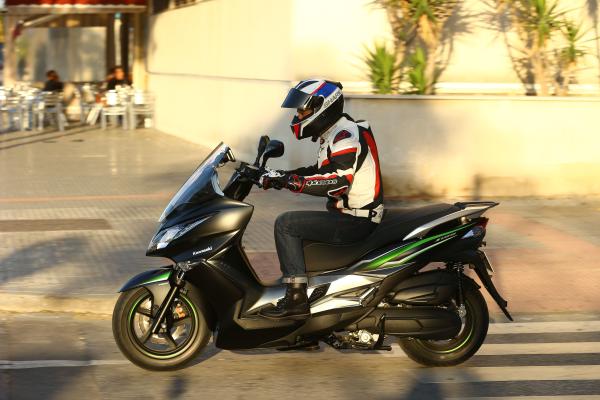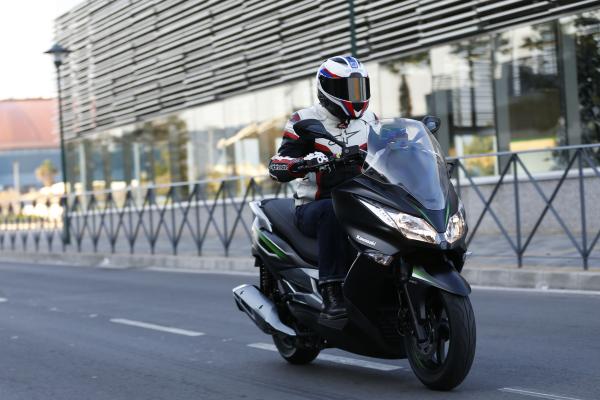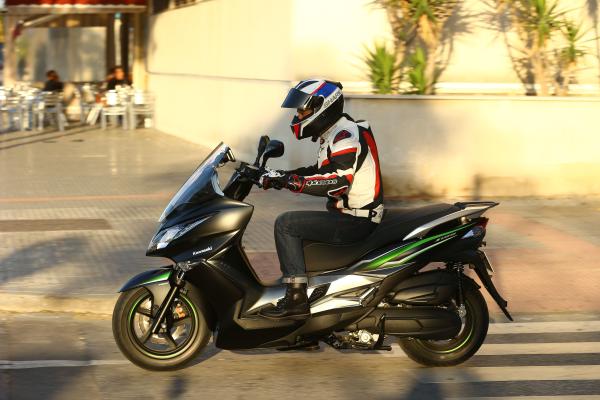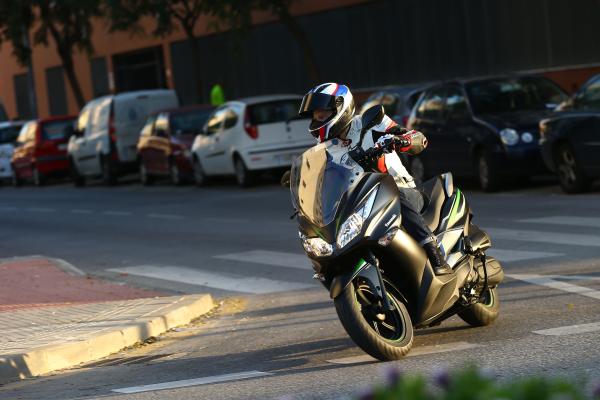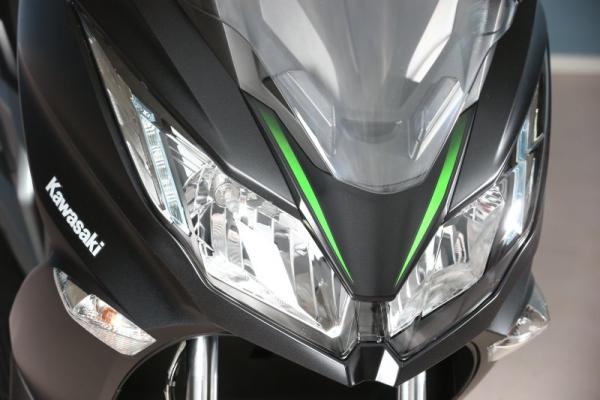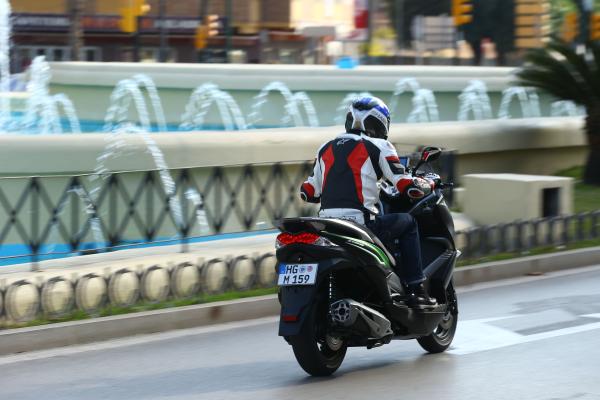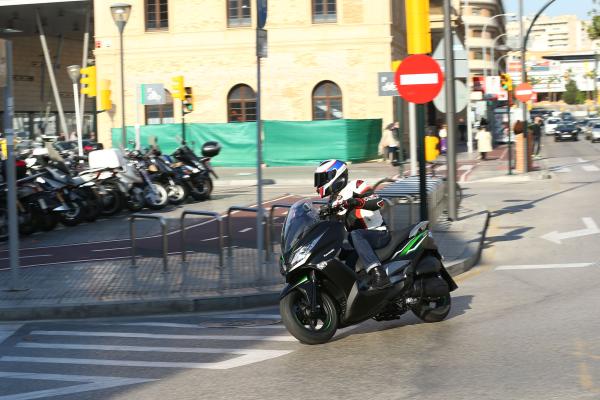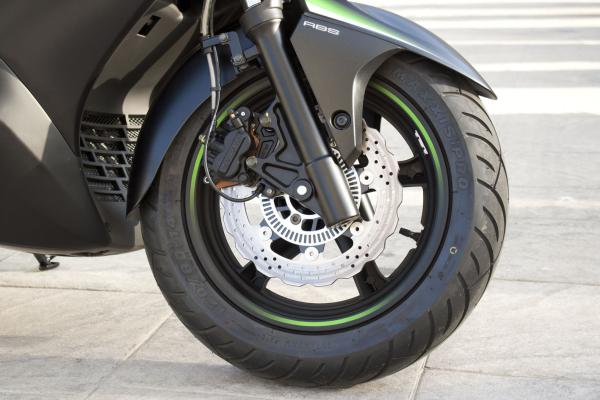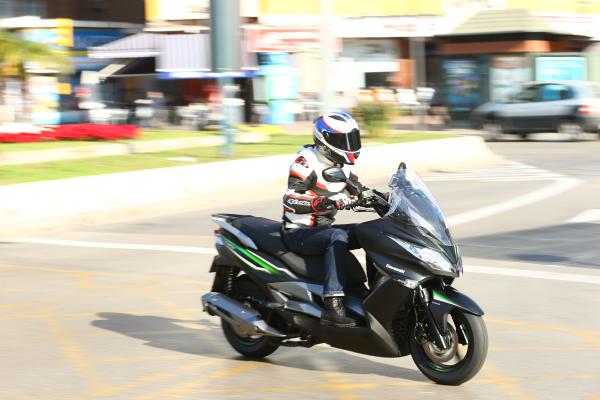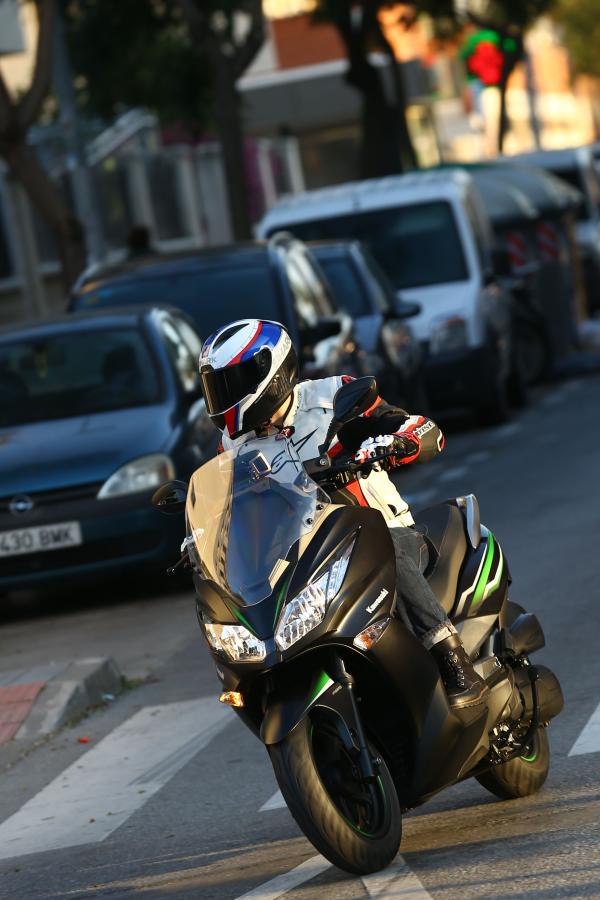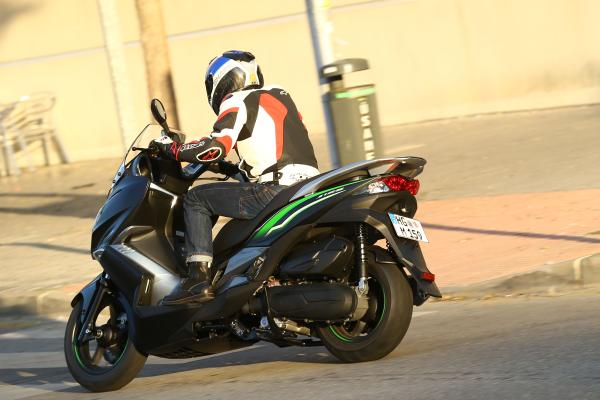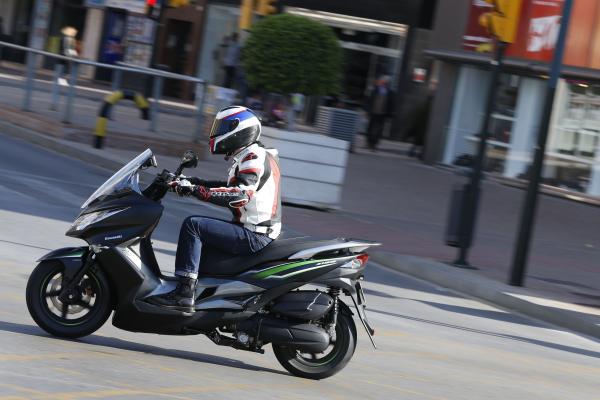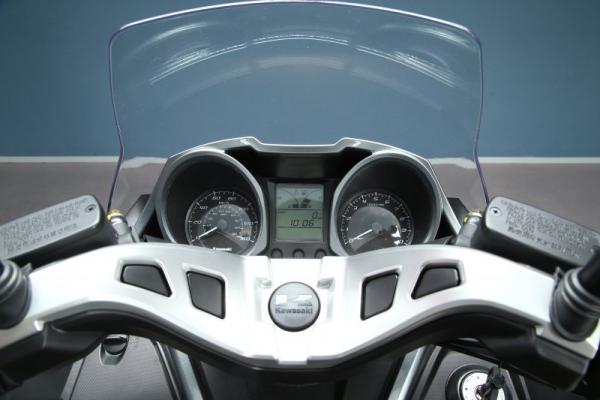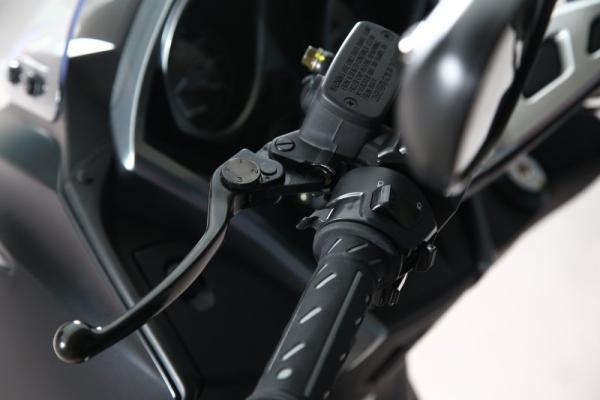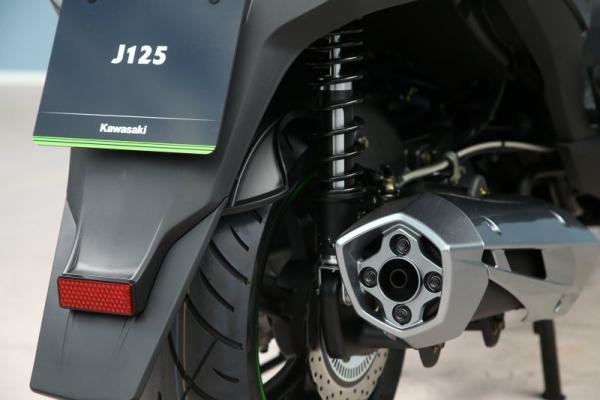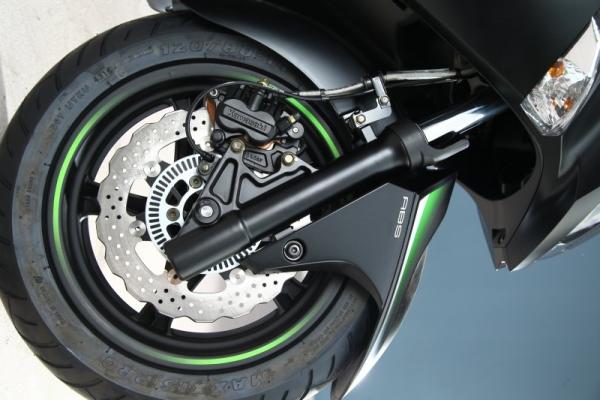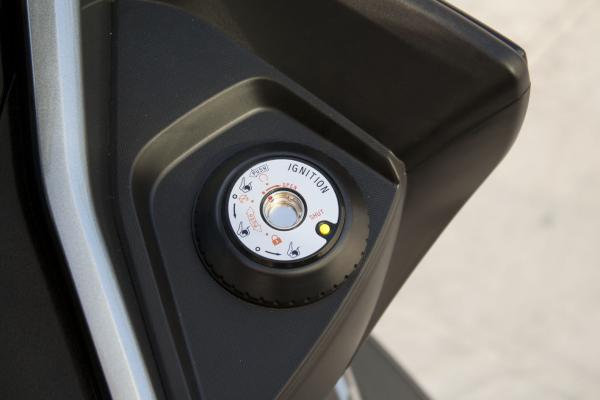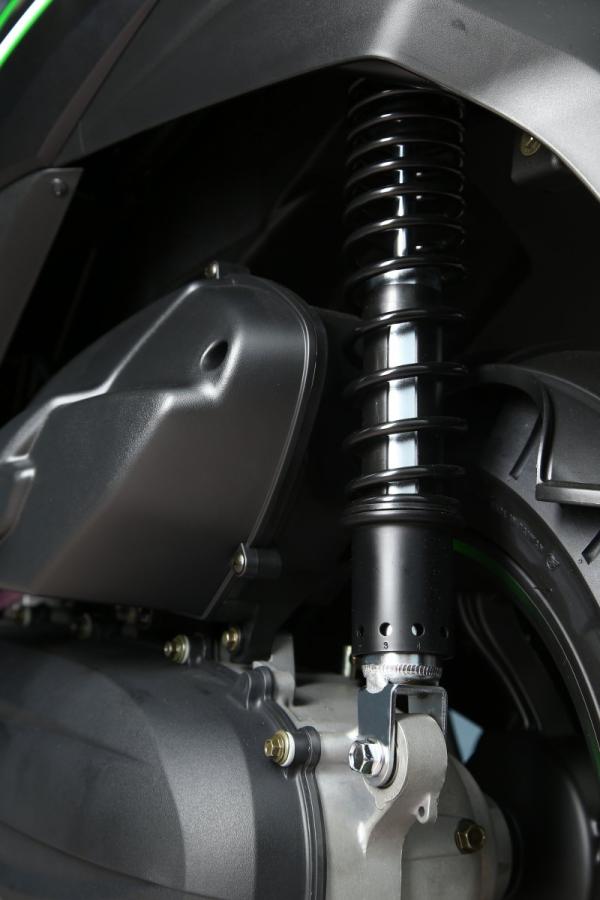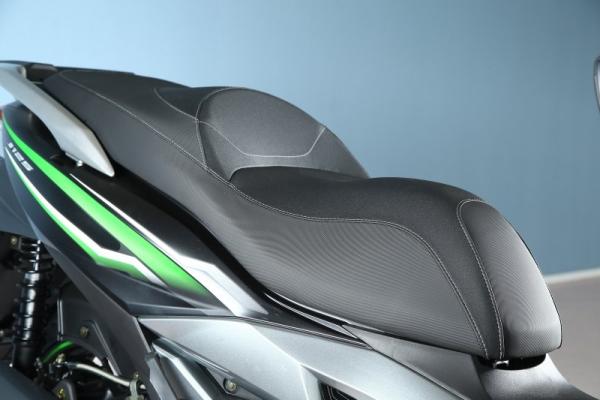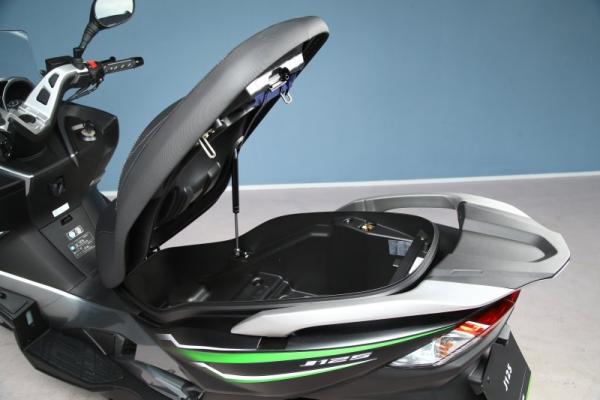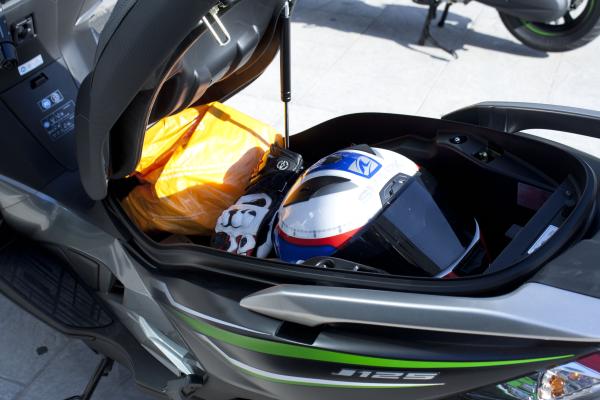First ride: Kawasaki J125 review
Just don’t call it a maxi-scooter

Member for
54 years 8 monthsMOST people who know me will tell you that I’m the epitome of urban. I’m so urban, I haven’t seen a tree since 1997 and when I do venture out of the city, I bring bottled exhaust fumes with me just in case I get sick from inhaling clean air. I could be in the most stunning of national parks, but if I’m not near a coffee shop that charges £7.50 for a small latte that’s delivered with a dirty look, I feel nervous.
I need a bike to match how urban I am and Kawasaki thinks the new J125 could be the small capacity maxi-scooter I’ve been looking for. Small capacity maxi-scooter – is that a contradiction in terms? I asked Kawasaki if it was a maxi-scooter – they said ‘No!’, instead dubbing it a ‘125cc scooter with mid-level features.’ It looks like a maxi-scooter to me, and I think Kawasaki is underplaying its features and spec by calling them 'mid-level', because for £3,799 it feels quite premium.
Regardless of how it’s being classified, the J125 is a big deal for Kawasaki because it’s taking it further into the scooter market after the launch of the J300. It’s also important because it’s a scooter designed to make Kawasaki more accessible to a wider range of customers. It’s particularly aimed at young and inexperienced riders, female riders, plus car drivers and non-motorcyclists.
Being part of the same family, the J125 shares a few parts with the J300, its chassis being one, but its engine isn’t just a sleeved down version of the power plant from the J300. The motor is a new unit with a different ECU and J125 also has different clocks compared to its bigger brother. Like the J300, the J125 is also based on the Kymco Downtown.
Like me, the J125’s natural environment is the city, which is where the 13.8hp from its 125cc, water cooled, four-stroke engine is most at home. The Kawasaki is slightly less powerful than the Yamaha X-MAX 125 (which makes 14.14hp), weighs 9kg more than the 173kg X-MAX and costs the same as the Yamaha. Compared to another bike it’ll likely be trying to take sales from – Honda’s Forza 125, the J125 is £200 cheaper, but 21kg heavier and marginally less powerful (the Forza makes 14hp). We also know the manufacturer stated fuel consumptions for the Yamaha and Honda, but Kawasaki hasn’t released any fuel consumption information for the J125, so we’ll have to wait until we can test one in the UK before telling you how frugal (or not) it is.
Through town the J125’s engine provides ample drive. Even though the bike has a claimed kerb mass of 182kg (Kawasaki doesn’t explain its definition of kerb mass), the motor has enough pep to easily beat cars off the lights and the power is enough for the J125 to easily hold its own in town.
On fast main roads and motorways, I had the J125 up to just under 75mph before it struggled to go any faster. Like I said, it’s most at home in a city, and overtaking at speed is definitely not its forte. Although you can overtake other traffic at speed (once over about 60mph), the engine lacks the punch to do it quickly, so getting past cars sometimes took planning.
Thanks to its CVT transmission, the J125 has that typical, slightly laggy scooter throttle response. It’s not bad though, and takes all of 30 seconds to get used to. The engine’s doing 2,000rpm on tick-over and the J125 starts edging forward by the time the rev counter is displaying 3k. Most of the engine’s drive comes over 6k but because of the transmission ratio, it could occasionally feel like it was struggling as the revs rocketed up to near the limiter or climbed slowly, out of kilter with what I was doing with the throttle . Again, this is something I became used to as I rode it more and after a time, it wasn’t difficult to feel what the engine and transmission were likely to do in a given situation.
The ABS-equipped brakes are more than capable of bringing the J125 to a swift halt. Feel through the adjustable levers is particularly good, giving me bags of confidence to wring all the available power out of the two-piston (with 260mm disc) front and single-piston (with 240mm disc) rear Kawasaki-branded stoppers. Perhaps that confidence is why I found the ABS quite easy to activate at both ends. Much like a cheeky Nandos, I was looking forwards to some cheeky rear wheel skids but the pulse through the left lever gave me a stern telling off every time I tried it on.
The suspension feels good. The non-adjustable fork compresses in a controlled manner under braking and the rear feels okay too. It’s difficult to tell with the rear because the J125's immensely comfortable seat is so wide and squishy that it’s never going to give your bottom a private line to the preload adjustable twin rear shocks and Maxxis iPro tyre. I increased the preload to near maximum throughout the day, and it made the rear feel firmer, and more to my liking.
It handles well too. I thought the J125’s weight and power would make it feel lethargic and heavy around town, but it’s well balanced and easy to thread through traffic at low speed. I think that’s a combination of the engine occupying the bottom back half of the bike, and the fuel tank being under the footboards. Whatever the reason, the J125's handling manners aren't compromised by its heft. At motorway speeds, along with demonstrating its decent wind protection, the J125 proved itself stable and comfortable.
On a couple of occasions, going round faster corners that required a bit more lean angle, it felt like the rear tyre briefly lost traction. I couldn’t be sure whether it was the tyre protesting as I used a part of it that hadn’t previously made contact with the road or whether it was the rear suspension having a moment.
Like every big scoot worth its salt, the J125 is practical and has decent storage - more than the Yamaha and Honda by the looks of it. Under the seat there’s enough room for a full face lid plus some shopping, and (if you're like me), all the junk I want to cart around with me. A small compartment under the left side of the handlebar can take a phone and wallet, and contains a USB port for charging a phone or sat nav. This is definitely useful, but because of its compact size, if the head of the USB cable is particularly big, it obstructs easy access. The storage area can be easily opened and shut with gloves on, but it’s not lockable. The anti-tamper ignition should do more to thwart thieves though – press a button and the ignition gets covered by a metal plate which is opened up again with the other end of the key, which acts like a chuck.
Quality is high everywhere – the controls and switch-gear are great, as is the quality of the finish and the plastics and paint. The clocks are clear and easy to read, but the function buttons are a bit awkward to get to over the bars and I had to hold them down for a few seconds before they did anything.
In terms of ergonomics, I found it comfortable. The grippy footboards gave me enough room to move my legs around. The bars are at a comfortable reach and height.
So is it going to steal the thunder from the X-MAX and Forza 125? There's no reason why it shouldn’t - it’s a high quality, comfortable and capable scoot that gives you maxi-scooter capability for less than £4k. Personally, I think it looks better than the both the Yamaha and Honda, with a sharper front end and headlights that draw some inspiration from Kawasaki’s sports bikes. However, it lacks the under seat storage capacity of the Honda and Yamaha, which can both take two full face lids.It also remains to be seen how good it is on fuel, but if I was about to buy a new 125 scooter to waft me and a my stuff round the city, this would be on my list.
WATCH OUR VIDEO REVIEW OF THE KAWASAKI J125
Model tested: Kawasaki J125
Price: £3,799, or £3,899 for the special edition
Engine: 125cc, liquid-cooled four-stroke single
Power: 13.8hp
Torque: 8.48lbft
Fuel capacity: 13 litres
Seat height: 775mm
Colours: ‘Metallic Anthracite Black / Green’, ‘Metallic Frosted Ice White’, ‘Metallic Anthracite Black’
Availability: End of January
